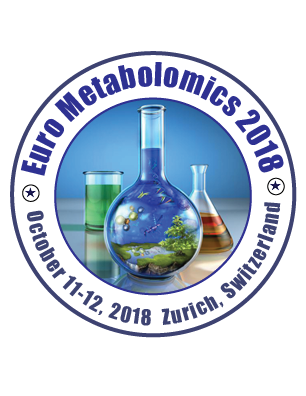
Eloiza H Tajara
University of Sao Paulo, Brazil
Title: Plasma metabolomics for identifying diagnostic and prognostic biomarkers of oral cancer
Biography
Biography: Eloiza H Tajara
Abstract
Metabolomics has proved to be an important tool in cancer research, it allows the identification of molecular pathways behind the tumor phenotype and clinically useful markers. In fact, the data have shown the potential of metabolites to classify different types of cancer, both in diagnostic and prognostic levels. In head and neck cancer, several metabolomic data have been published in biofluids and tumor tissues. In the present study, plasma analysis was performed to identify metabolic profiles in oral squamous cell carcinoma (OSCC) patients and controls as well as in patients at different stages of disease. 1H NMR (Proton Nuclear Magnetic Resonance) analysis was performed on plasma samples from 47 OSCC cases and 49 controls to investigate association of metabolite concentrations with clinical, pathological and lifestyle variables. The results showed that clinical and lifestyle variables affect the plasma concentration of metabolites, especially those involved in metabolic pathways related to energy homeostasis. Mass spectrometry analysis of plasma samples was also performed to compare metabolite concentrations of 61 OSCC patients with 61 controls and of different cancer stages to obtain an insight on the dynamics of metabolite changes during oral neoplastic progression. Identification of the metabolites with significantly different concentrations was carried out using the PLS-DA (Partial least squares Discriminant Analysis) method. The 15 top features with higher VIP scores included acylcarnitine, serotonin and phosphatidylcholines more expressed in plasmas from patients. In addition, the data showed a deregulation in
carnitine concentrations and an increased biosynthesis of unsaturated lipids during neoplastic transformation, but more evident in the stage with larger tumor volume. In summary, the OSCC patients exhibited a distinct plasma metabolic profile suggestive of abnormal lipogenesis and energy metabolism, which is apparent in advanced stages of the disease and may contribute to proliferation and inflammation. Such signature, if used in monitoring tests, may contribute to prognosis and treatment of OSCC.

